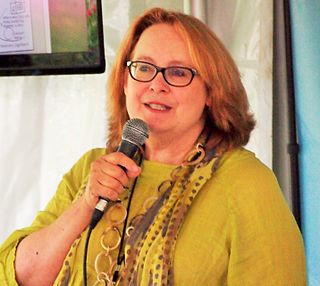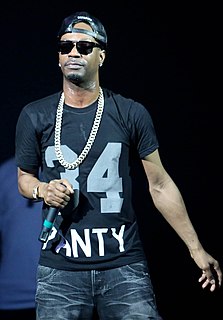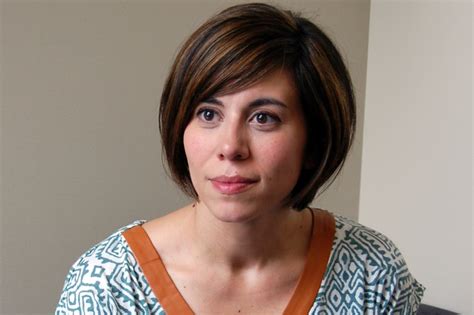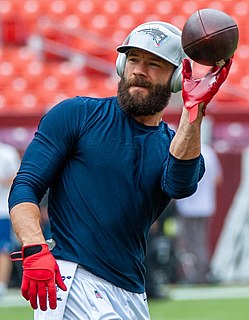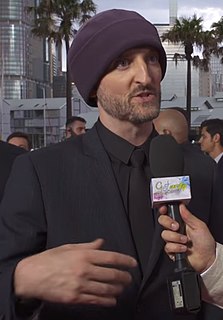A Quote by Caroline Leavitt
E-readers are changing the way we read, and the author is now required to get out there and be a kind of showman, an unlikely role for introspective people used to working in their pajamas!
Related Quotes
People are used to streaming and binge-watching. When they see an author they like, if there's only one book, even if they like the book, they're going to forget about you. The way to keep you in their mind and to get you to become a habit for these readers is you have to have a lot of product out there for them to read.
As a children's author, you get to advocate for reading and writing in general, in a way an adult author might not be able to. It's a really interesting dance we do to get literature into the hands of young people and to help them to become literate and become readers; we want them to grow up reading and continue to do so when they're adults.
I had to audition for Fandango. When I read the script, the role that was interesting - so everyone thought - was the role that Costner played. He was the cool guy. And I read the script, and my representation at the time said, "That's the role you should read for." And I was like, "Really? How about I read for this other role." And they went, "Well, you're not going to get that role."
Albert Camus was never abandoned by his readers. Camus is enormously read. He's the highest selling author in the entire Gallimard collection, and has been for some years now. Sales haven't ever stopped, so to talk about rediscovering him would suggest that he isn't read anymore and that's not true.
One of the reasons I wanted to write a memoir was because I'm tired of telling my story. [Laughs] So I can say, here, read it, this is everything that happened. There are a bunch of cool stories of the transition of me becoming a receiver from a quarterback in college to being a special teams guy, a role player, to working my way to the role I've earned now.
My heroes and heroines are often unlikely people who are dragged into situations without meaning to become involved, or people with a past that has never quite left them. They are often isolated, introspective people, often confrontational or anarchic in some way, often damaged or secretly unhappy or incomplete.
I've always kind of thought that reviews written by readers for readers are a kind of private space between consumers. It's their right to say anything they like about your material, and authors need to know that and respect that. As for my end, I'm aware of what my sales are, so I know that my books are working in the marketplace, at least for now, and beyond that, I have to just do my thing and stay focused.
I only know what it's like to be an author with social media. I can't compare. I do think we lose the mystery of the author. Today, I get tons of e-mails and Facebook messages from readers, and my goal with Twitter and Facebook is, if someone reaches out to me, I'm going to respond to them. I don't want to be an elitist author who is untouchable. I'm just a regular person, too. I will always respond to everybody.
Attention spans are changing. It's very noticeable. I am very aware that the kind of books I read in my childhood kids now won't be able to read. I was reading Kipling and PG Wodehouse and Shakespeare at the age of 11. The kind of description and detail I read I would not put in my books. I don't know how much you can fight that because you want children to read. So I pack in excitement and plot and illustrations and have a cliffhanger every chapter. Charles Dickens was doing cliffhangers way back when. But even with all the excitement you have to make children care about the characters.
I get letters from two kinds of readers. History buffs, who love to read history and biography for fun, and then kids who want to be writers but who rarely come out and say so in their letters. You can tell by the questions they ask - How did you get your ?rst book published? How long do you spend on a book? So I guess those are the readers that I'm writing for - kids who enjoy that kind of book, because they're interested in history, in other people's lives, in what has happened in the world. I believe that they're the ones who are going to be the movers and shakers.


